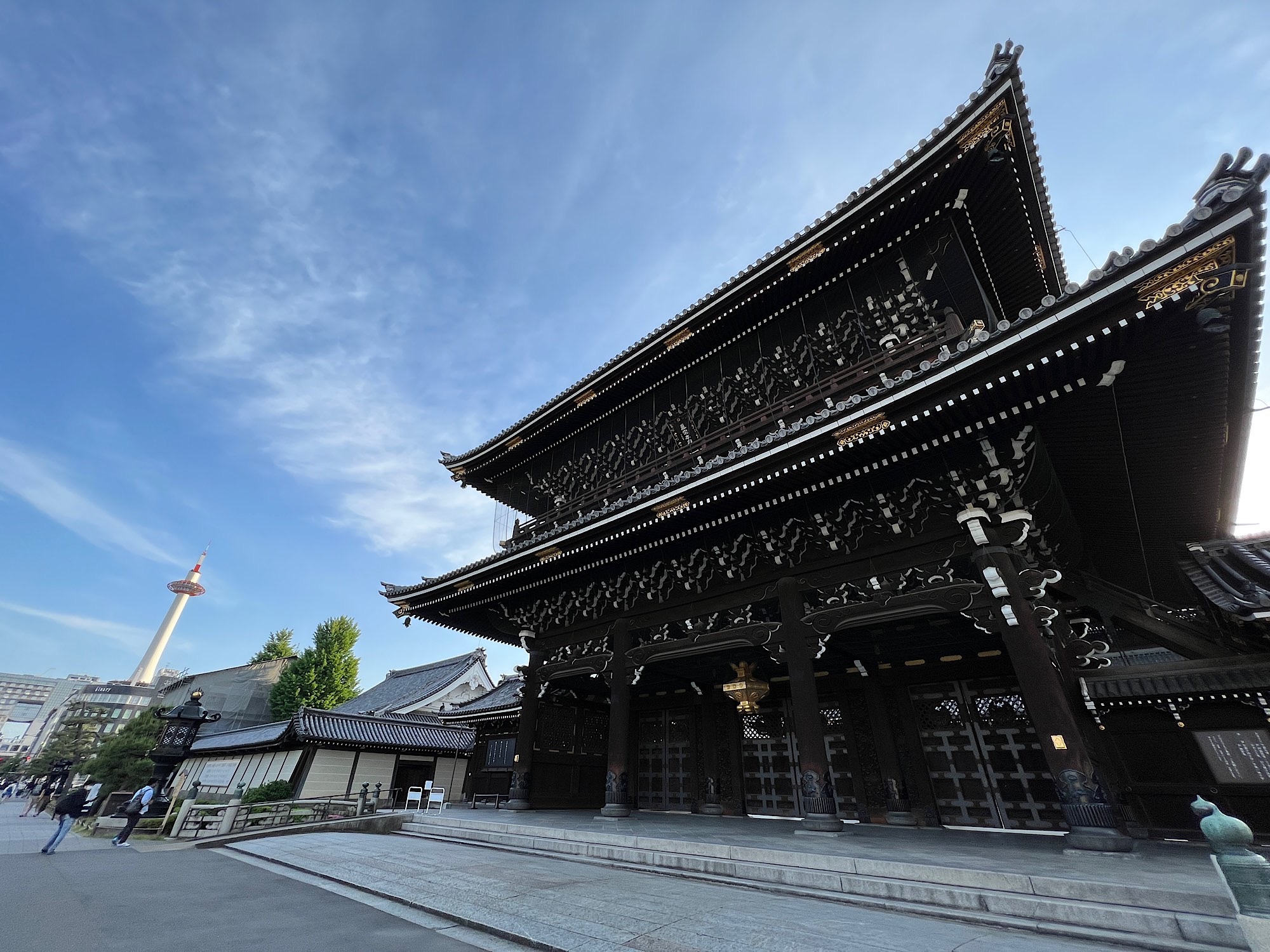The past two weeks in Kyoto have been pretty hectic. I have yet to meet anyone other than family, for obvious reasons. With the kids not in school, we have been going on walks around the neighbourhood so I can get them off of YouTube and TikTok. Other than those short explorations we have been greeting neighbours, running errands, unpacking boxes, settling in.
It is strange to me to be back in Kyoto full-time since my last 3 year stint ending in 2005. I am looking forward to seeing the city with fresh eyes.
Today, while walking home I was thinking about how often I have shifted locations, and how I envy people who really know their city, who feel part of their city. I stopped in a little coffee shop that I had on my list, and ruminated. Below are the notes I took on my phone while enjoying the java.
What does it mean to say that a city is “yours”? To say proudly “this is my city!”
I have gone to university here, worked here, had a daughter born here, witnessed both life and death events here, walked rode and drove the streets here.
I have both a feeling of nostalgia and wonder. It has been long enough that I have seen many changes. But I certainly do not know the ins-and-outs of the city in 2022.
Living in this new (to me) neighborhood, I am making all sorts of discoveries. For example, when I lived up near Rits, or over in Demachiyanagi, or even down on Oike, I almost never went to Kyoto Station. That was a place packed with tourists and to be avoided. Now that we are living south of downtown, I have been there pretty much every day this last week!
I think you need to have two things to claim a city as yours: memories of the past, and knowledge of the present. In terms of Kyoto I have the old memories, but not a lot of knowledge on what is going on now. It is tough for a city with Kyoto’s history, where “the best place to get dorayaki” hasn’t changed in like 300 years. But you know what I mean.
Kyoto is also a special case in that it can easily reject any claim to ownership. It is said you must be at least fifth generation to be considered a Kyotojin (Tokyo, that far-off ”eastern capital“ founded by warriors and fishermen requires merely three generations). Out of all my extended family, only my youngest daughter can claim this right. (My eldest was born in Nagoya).
Those two assets — old knowledge and current knowledge — are ultimately individualistic, and cities are by definition a collection of human beings. “Community” is the number one thing you need to feel part of a city, to claim “ownership.” That is why it usually takes a couple of years to settle in. I should know, considering how many times we have moved. Any sense of belonging we have is divided. We moved back and forth, and kept in contact with our communities using the internet. I have friends in Kyoto I have known for 20 years. I still play DnD with my group in Kelowna over Zoom, a member of which I have known for 30 years!
Why do I feel a dislocation just because my communities are not bounded by geography? That is actually a wonderful thing, afforded by 21st travel and communication. Grass is greener I suppose.
Anyways, I look forward to digging more into this great city, and making more connections.
Addendum
When I knew we were going to relocate to Kyoto I ordered a book that had been on my list for quite some time: Kyoto: An Urban History of Japan’s Premodern Capital by Matthew Stavros. I look forward using books like this and Another Kyoto (my review here) to explore the 1200 year history and culture, kind of like how I was exploring Kyushu while in Iki.



